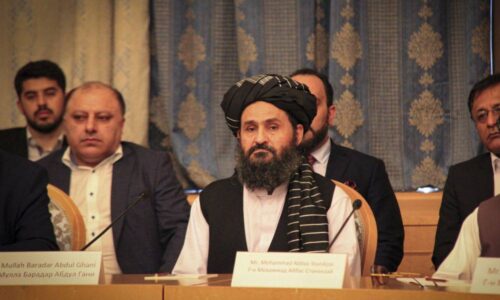
Taliban’s Ankara visit and the Islamic State threat in Afghanistan
A delegation from Afghanistan’s interim Taliban government, led by acting Foreign Minister Amir Khan Muttaqi, visited Turkey’s capital, Ankara, last week. Foreign Minister Mevlüt Çavuşoğlu reminded the Taliban, who seek international recognition, humanitarian aid and foreign investment, of the importance of forming an inclusive government and ensuring that girls attend school.
Having received those recommendations, the delegation returned to Afghanistan, only to be shocked by a Daesh perpetrated suicide attack against a mosque with a predominantly Shiite congregation in Kandahar.
Some 47 Afghan worshippers lost their lives as a result of that attack. On the previous Friday, another Daesh suicide bomber had killed at least 100 people at a predominantly Shiite mosque in Kunduz.
The spike in Daesh terrorist attacks must ring alarm bells all over the world – with an eye on Afghanistan’s future. That group, which fuels ethnic and sectarian conflict, represents the single greatest problem in Afghanistan and its neighborhood.
The whole world wonders how the Taliban intend to rule Afghanistan, yet the country faces a very grim future. Despite accumulating significant experience between 1996 and 2001, the movement finds it difficult to rebuild the bureaucracy, run public institutions and manage the nation’s economic life.
Moreover, the exodus of human and financial capital has dragged Afghanistan’s already weak economy into a full-blown crisis. The Afghan people, who supported the Taliban over rampant corruption under the governments of former presidents Hamid Karzai and Ashraf Ghani, expect the movement to govern effectively.
Yet the sense of victory, rooted in the United States’ defeat, may give way to crises of government and ethnically motivated revolts. Furthermore, the continued presence of terrorist organizations, starting with Daesh, in Afghanistan place at risk domestic stability as well as the Central Asian republics, China and the rest of the world. As winter approaches, millions of Afghans could experience hunger and poverty – which, by extension, means worsening humanitarian suffering and migration.
Afghanistan could end up in a vicious cycle of poverty, terrorism and civil war, if the international community does not make up its mind about its future engagement with the Taliban soon. That the movement consists largely of Pashtuns makes other ethnic groups unhappy.
The contradictions become much more obvious if one were to throw in the radical views of Daesh – which considers even the Taliban un-Islamic – and acts of terrorism by that group into the mix.
Source: Daily Sabah





